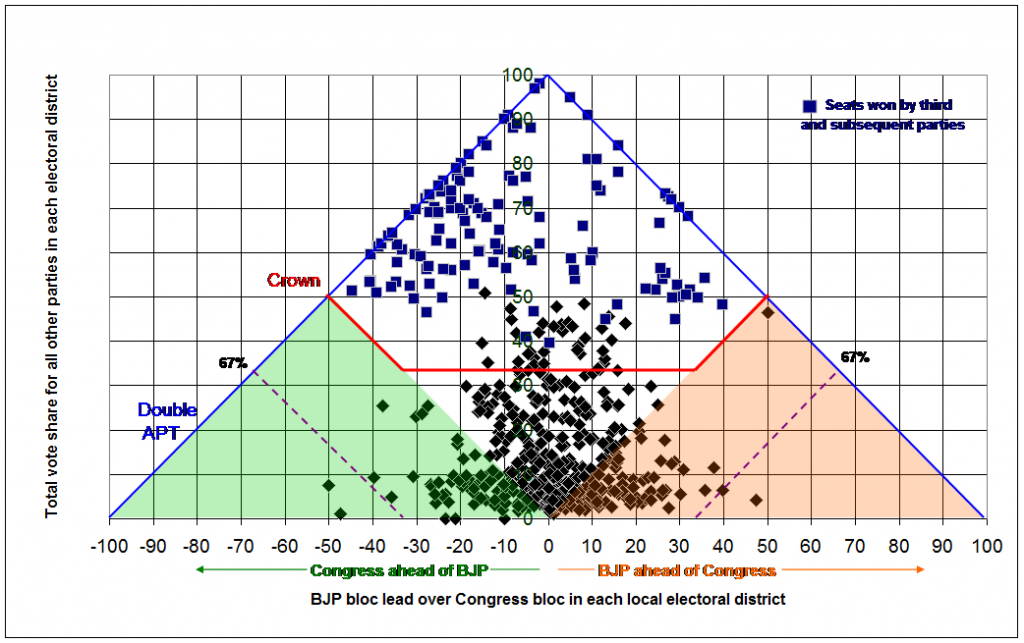A
anon_6hv78pr714xta
Guest
From Matt Taibi:

On the Sunday morning shows today, prestige media did its best to soften the blow of Afghanistan. A key theme: we didn’t lose to the Taliban, but beat ourselves. It was “self-defeat,” somehow not-disgraced former National Security Adviser H.R. McMaster told NBC, while Washington Post columnist Eugene Robinson cautiously described the disaster of Afghanistan as “a war we did not win.” Chuck Todd on Meet the Press liked that. “I agree,” he said, smiling a little and noting, “I don’t know if you can say we lost, but we didn’t win.”
 Meet the Press @MeetThePress
Meet the Press @MeetThePress
WATCH: "This is what withdrawal from a war that we did not win looks like," says @Eugene_Robinson on #MTP "It's messy. It's awful. ... It's a tragic thing for a lot of Afghans ... certainly for the 13 service members who lost their lives and their families."
August 29th 2021
9 Retweets23 Likes
Just a few weeks in, the gruesome story of Afghanistan’s collapse is already being sanitized, cleaved into neat storylines for blue and red audiences who as usual are being herded into safe psychological spaces, where they can happily non-consider what happened across the last 20 years. The images they see on TV aren’t their party’s fault, it’s those other jerks to blame, etc.
Republicans are blissful over Joe Biden’s approval rating nosedive and are thrilled to blame the whole debacle on our Sundowner-in-Chief. Biden, they say, is prioritizing Afghan lives over Americans in his withdrawal plans, and continues to push his $3.5 trillion “socialist wish list” over national security, and should have used Mike Pompeo’s “conditions-based” withdrawal plan instead of the ass-over-elbow deal they used in reality. Multiple Republicans are aping Trump-era Democrats by demanding the president’s resignation, with one, Missouri Senator Vicky Hartzler, going so far as to demand closure of the U.S.-Mexican border to “protect American lives” from an alleged heightened terrorist threat.
Democrats, not completely without self-reflection in the first days of this crisis, are already back focused on counter-blame narratives. Blue-state audiences are being reminded Donald Trump negotiated the “premature” May 1st pullout date, and that when critics blasted that deal as “weak and dangerous,” House Minority Leader Kevin McCarthy advised his caucus not to speak against it. McCarthy today is leading the charge in criticizing Biden’s withdrawal, which is “so freaking hypocritical,” according to Senate-to-MSNBC pipeline passenger Claire McCaskill. Moreover, they say, House Democrat Jason Crow offered an amendment for his own “conditions-based” withdrawal plan, and that was shot down by the likes of Matt Gaetz, who last year said, “I don’t think there’s ever a bad day to end the war in Afghanistan.”
It’s all noise, designed to distract from the fact that Afghanistan is as pure a bipartisan fiasco as we’ve had in recent times. Both parties were directly and repeatedly complicit in prolonging the catastrophe. Republicans and Democrats were virtually unanimous in approving the initial use-of-force, both voted over and over to fund the war to insane levels, and both Democratic and Republican presidents spent years covering up evidence of massive contracting corruption, accounting failure (as in, failure to do any accounting), war crimes, and other problems.
Afghanistan was the ultimate symbol of the two-party consensus, the “good war” as Barack Obama deemed it, and defense spending in general remained so sacrosanct across the last twenty years that the monster, $160 billion defense spending hikes of 2017-2018 were virtually the only policy initiative of Donald Trump’s that went unopposed by a Democratic leadership. “We fully support President Trump’s Defense Department’s request,” was Chuck Schumer’s formulation in 2018, choosing then to reward the Pentagon for turning Mesopotamia into a Mad Max set and spending two trillion dollars on the by-then-inevitable fall of Kabul.
Worse, as the performance of the legacy media in the last few weeks shows, the national commentariat is also fully occupied by the military establishment. Staffed from top to bottom by spooks and hawks, the corporate press’s focus from the pre-Iraq firing of Phil Donahue through the past few weeks of guest star appearances on CNN, Fox, and MSNBC by the likes of Leon Panetta, John Bolton, Karl Rove, David Petraeus and Marc Thiessen — all people with direct involvement in the Afghan mess — has been the same. It keeps the public distracted with inane tactical issues or fleeting partisan controversies, leaving the larger problem of a continually expanding Fortress America unexamined.
We need new institutions free of Pentagon influence, probably starting with a new political party. It doesn’t even matter so much what such a party would stand for, ideologically, so long as it adheres to one basic principle: don’t accept contractor money. It seems like the only possible solution to the disease that gave us Afghanistan. Our two parties, just like our academic research institutions, news networks, and even Hollywood’s movie studios, have become de facto Pentagon subsidiaries. They’re all hopelessly corrupted by the financial powers Dwight Eisenhower warned about, in his famous speech prophesying “the disastrous rise of misplaced power” from America’s armaments sector.

A few stray pundits in the last two weeks have pointed out the obvious fact that despite awesome financial and technological advantages, the United States has now “lost” virtually every war it has entered since World War II (with the possible exception of the first Gulf War, though the cleanness even of that victory is very debatable). Dominic Tierney, the author of The Right Way To Lose A War: America in the Age of Unwinnable Conflicts, told Time magazine a big reason for this was that “the nature of war itself” has changed since 1945:
Just as we’re always designing new rifles and tanks and jet fighters, we’ve become adept at manufacturing fresh intellectual justifications for deploying troops, churning out everything from “humanitarian war” to “benevolent hegemony” to “regime change” to “nation-building” to Eisenhower’s own “domino theory.” Where once we fought for literal survival against other nations, and knew who’d won when one side surrendered, we’re now sending our kids to die (and kill) in open-ended engagements where victory is either impossible or indefinable, and the main concrete “results” are masses of foreign deaths and the gigantic houses built by defense executives in places like Loudon and Fairfax Counties in northern Virginia.
This is why, whenever we get a rare look at the real thinking underlying our modern conflicts, whether via the Pentagon or Afghanistan Papers or the Wikileaks release of diplomatic cables, we keep seeing the same story: senior American military and intelligence officials struggling to come up with “metrics for success,” in some cases years after they’d already invaded and occupied places like Vietnam and Afghanistan.
It shouldn’t need to be said, but if you have to invent a “metric for success” in war that goes beyond defeating an enemy, you’re not really at war, you’re doing something else.
To Stop War, America Needs a Third Party
The American political system has been captured by the military, and only an independent political power can prevent the next Afghanistan
| Matt Taibbi | Aug 29 |
On the Sunday morning shows today, prestige media did its best to soften the blow of Afghanistan. A key theme: we didn’t lose to the Taliban, but beat ourselves. It was “self-defeat,” somehow not-disgraced former National Security Adviser H.R. McMaster told NBC, while Washington Post columnist Eugene Robinson cautiously described the disaster of Afghanistan as “a war we did not win.” Chuck Todd on Meet the Press liked that. “I agree,” he said, smiling a little and noting, “I don’t know if you can say we lost, but we didn’t win.”
 Meet the Press @MeetThePress
Meet the Press @MeetThePressWATCH: "This is what withdrawal from a war that we did not win looks like," says @Eugene_Robinson on #MTP "It's messy. It's awful. ... It's a tragic thing for a lot of Afghans ... certainly for the 13 service members who lost their lives and their families."
August 29th 2021
9 Retweets23 Likes
Just a few weeks in, the gruesome story of Afghanistan’s collapse is already being sanitized, cleaved into neat storylines for blue and red audiences who as usual are being herded into safe psychological spaces, where they can happily non-consider what happened across the last 20 years. The images they see on TV aren’t their party’s fault, it’s those other jerks to blame, etc.
Republicans are blissful over Joe Biden’s approval rating nosedive and are thrilled to blame the whole debacle on our Sundowner-in-Chief. Biden, they say, is prioritizing Afghan lives over Americans in his withdrawal plans, and continues to push his $3.5 trillion “socialist wish list” over national security, and should have used Mike Pompeo’s “conditions-based” withdrawal plan instead of the ass-over-elbow deal they used in reality. Multiple Republicans are aping Trump-era Democrats by demanding the president’s resignation, with one, Missouri Senator Vicky Hartzler, going so far as to demand closure of the U.S.-Mexican border to “protect American lives” from an alleged heightened terrorist threat.
Democrats, not completely without self-reflection in the first days of this crisis, are already back focused on counter-blame narratives. Blue-state audiences are being reminded Donald Trump negotiated the “premature” May 1st pullout date, and that when critics blasted that deal as “weak and dangerous,” House Minority Leader Kevin McCarthy advised his caucus not to speak against it. McCarthy today is leading the charge in criticizing Biden’s withdrawal, which is “so freaking hypocritical,” according to Senate-to-MSNBC pipeline passenger Claire McCaskill. Moreover, they say, House Democrat Jason Crow offered an amendment for his own “conditions-based” withdrawal plan, and that was shot down by the likes of Matt Gaetz, who last year said, “I don’t think there’s ever a bad day to end the war in Afghanistan.”
It’s all noise, designed to distract from the fact that Afghanistan is as pure a bipartisan fiasco as we’ve had in recent times. Both parties were directly and repeatedly complicit in prolonging the catastrophe. Republicans and Democrats were virtually unanimous in approving the initial use-of-force, both voted over and over to fund the war to insane levels, and both Democratic and Republican presidents spent years covering up evidence of massive contracting corruption, accounting failure (as in, failure to do any accounting), war crimes, and other problems.
Afghanistan was the ultimate symbol of the two-party consensus, the “good war” as Barack Obama deemed it, and defense spending in general remained so sacrosanct across the last twenty years that the monster, $160 billion defense spending hikes of 2017-2018 were virtually the only policy initiative of Donald Trump’s that went unopposed by a Democratic leadership. “We fully support President Trump’s Defense Department’s request,” was Chuck Schumer’s formulation in 2018, choosing then to reward the Pentagon for turning Mesopotamia into a Mad Max set and spending two trillion dollars on the by-then-inevitable fall of Kabul.
Worse, as the performance of the legacy media in the last few weeks shows, the national commentariat is also fully occupied by the military establishment. Staffed from top to bottom by spooks and hawks, the corporate press’s focus from the pre-Iraq firing of Phil Donahue through the past few weeks of guest star appearances on CNN, Fox, and MSNBC by the likes of Leon Panetta, John Bolton, Karl Rove, David Petraeus and Marc Thiessen — all people with direct involvement in the Afghan mess — has been the same. It keeps the public distracted with inane tactical issues or fleeting partisan controversies, leaving the larger problem of a continually expanding Fortress America unexamined.
We need new institutions free of Pentagon influence, probably starting with a new political party. It doesn’t even matter so much what such a party would stand for, ideologically, so long as it adheres to one basic principle: don’t accept contractor money. It seems like the only possible solution to the disease that gave us Afghanistan. Our two parties, just like our academic research institutions, news networks, and even Hollywood’s movie studios, have become de facto Pentagon subsidiaries. They’re all hopelessly corrupted by the financial powers Dwight Eisenhower warned about, in his famous speech prophesying “the disastrous rise of misplaced power” from America’s armaments sector.
A few stray pundits in the last two weeks have pointed out the obvious fact that despite awesome financial and technological advantages, the United States has now “lost” virtually every war it has entered since World War II (with the possible exception of the first Gulf War, though the cleanness even of that victory is very debatable). Dominic Tierney, the author of The Right Way To Lose A War: America in the Age of Unwinnable Conflicts, told Time magazine a big reason for this was that “the nature of war itself” has changed since 1945:
I’d agree, with a twist: under the influence of captured parties and the military’s ubiquitous and extravagantly funded public relations apparatus, America has itself redefined the “nature of war.” Armed conflict has gone from being an occasional unpleasant political necessity to the core product line of the American corporation. Wars are what we make, and like blue jeans or Louisville Sluggers, we build them to last, with Afghanistan the prime example. That should be the issue dominating Meet the Press, not whether we lost or just “didn’t win,” or which party’s leaders decided to pull out first, and why.Nearly all wars now are civil wars, complex arenas of counterinsurgency and terrorism. When you put the U.S. against another country where there’s a military that wears uniforms and they meet on the field of battle, the U.S. usually wins those kinds of wars—like the Gulf War in ‘91. But in complex civil wars, the United States has really struggled.
Just as we’re always designing new rifles and tanks and jet fighters, we’ve become adept at manufacturing fresh intellectual justifications for deploying troops, churning out everything from “humanitarian war” to “benevolent hegemony” to “regime change” to “nation-building” to Eisenhower’s own “domino theory.” Where once we fought for literal survival against other nations, and knew who’d won when one side surrendered, we’re now sending our kids to die (and kill) in open-ended engagements where victory is either impossible or indefinable, and the main concrete “results” are masses of foreign deaths and the gigantic houses built by defense executives in places like Loudon and Fairfax Counties in northern Virginia.
This is why, whenever we get a rare look at the real thinking underlying our modern conflicts, whether via the Pentagon or Afghanistan Papers or the Wikileaks release of diplomatic cables, we keep seeing the same story: senior American military and intelligence officials struggling to come up with “metrics for success,” in some cases years after they’d already invaded and occupied places like Vietnam and Afghanistan.
It shouldn’t need to be said, but if you have to invent a “metric for success” in war that goes beyond defeating an enemy, you’re not really at war, you’re doing something else.




